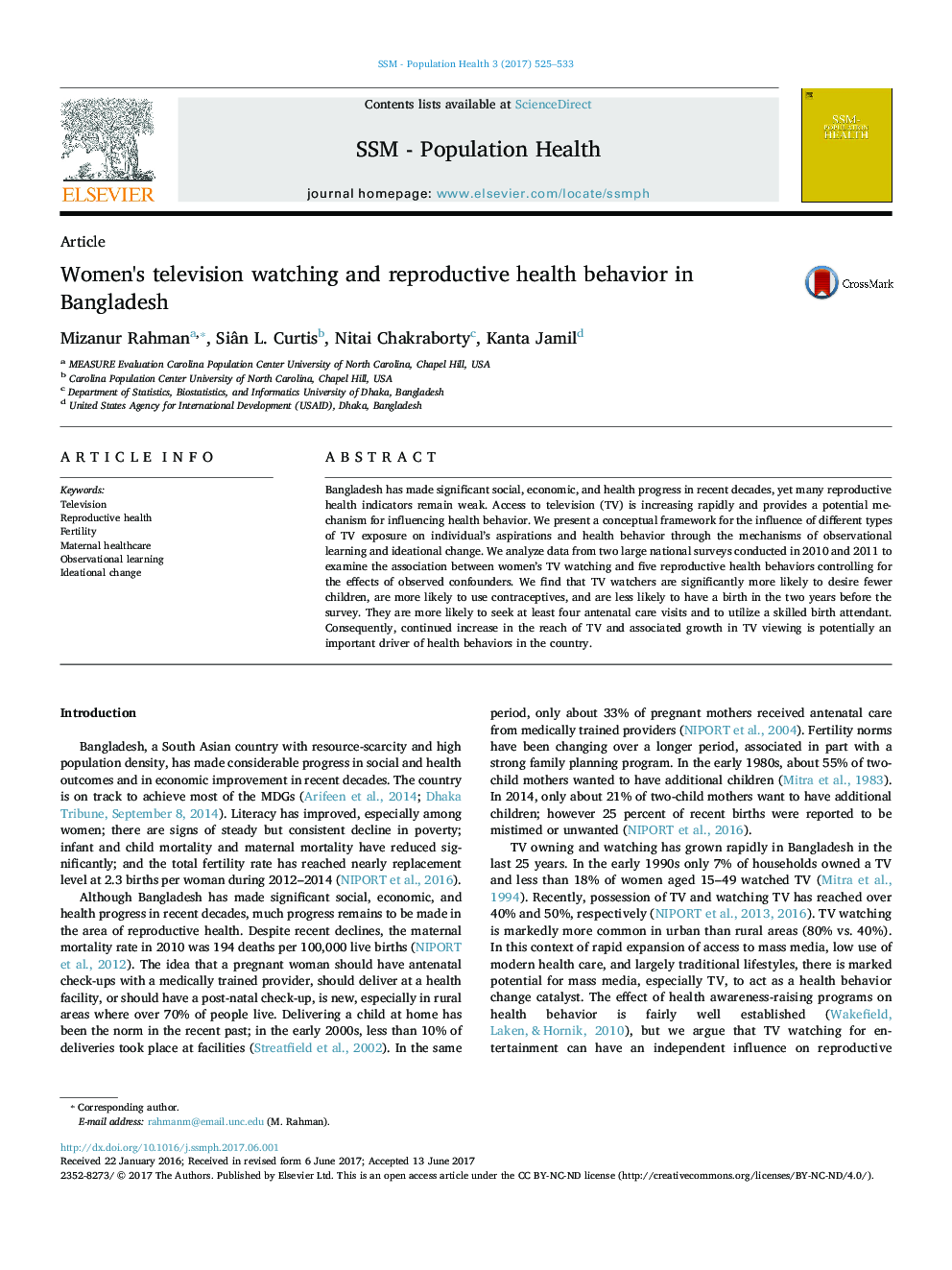| Article ID | Journal | Published Year | Pages | File Type |
|---|---|---|---|---|
| 5123285 | SSM - Population Health | 2017 | 9 Pages |
â¢Potential pathways of television effects on reproductive health behavior are identified.â¢Fertility is lower and maternal healthcare higher among television watchers than non-watchers in Bangladesh.â¢TV watching is potentially an important driver of health behavior in Bangladesh.
Bangladesh has made significant social, economic, and health progress in recent decades, yet many reproductive health indicators remain weak. Access to television (TV) is increasing rapidly and provides a potential mechanism for influencing health behavior. We present a conceptual framework for the influence of different types of TV exposure on individual's aspirations and health behavior through the mechanisms of observational learning and ideational change. We analyze data from two large national surveys conducted in 2010 and 2011 to examine the association between women's TV watching and five reproductive health behaviors controlling for the effects of observed confounders. We find that TV watchers are significantly more likely to desire fewer children, are more likely to use contraceptives, and are less likely to have a birth in the two years before the survey. They are more likely to seek at least four antenatal care visits and to utilize a skilled birth attendant. Consequently, continued increase in the reach of TV and associated growth in TV viewing is potentially an important driver of health behaviors in the country.
